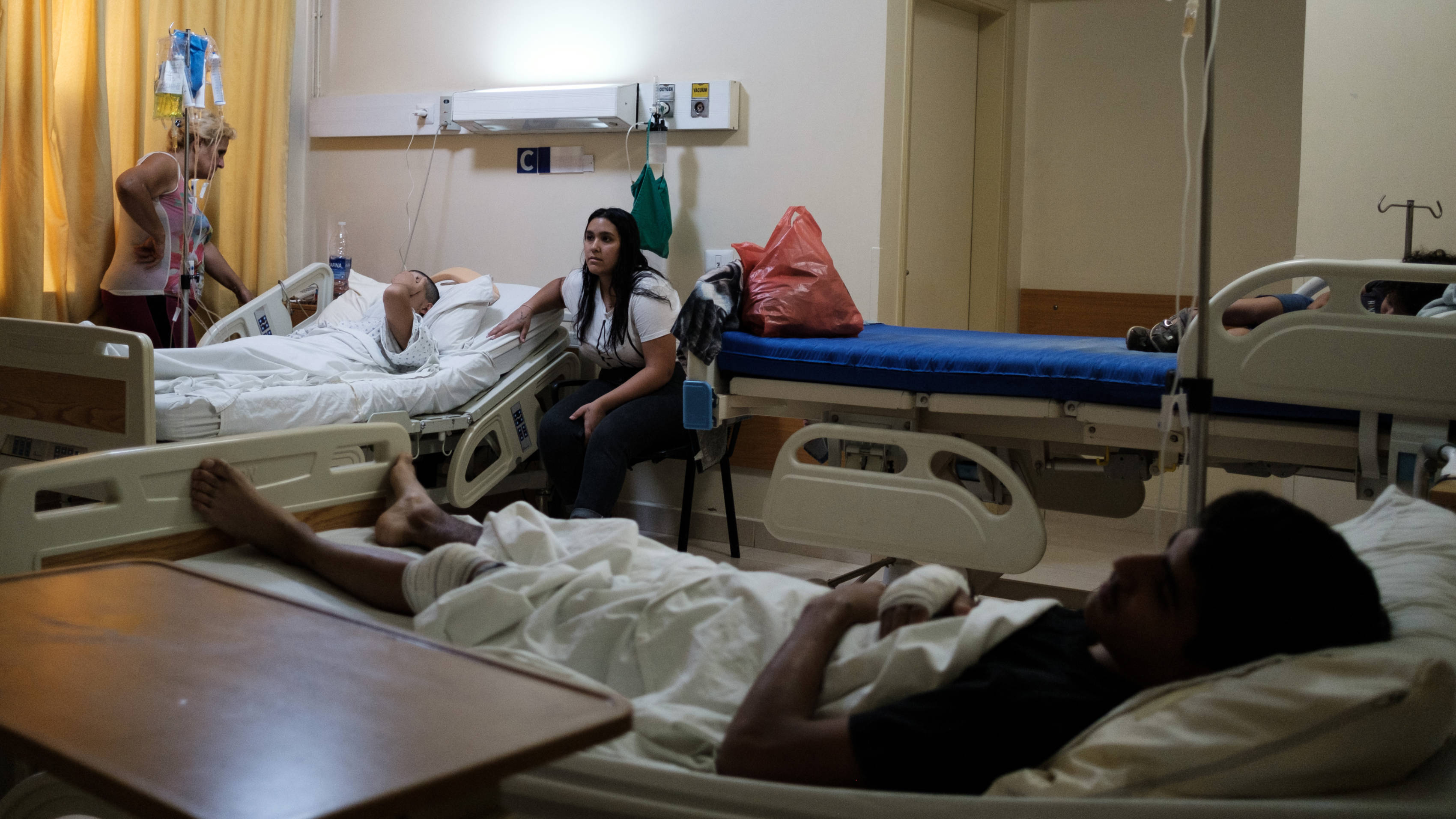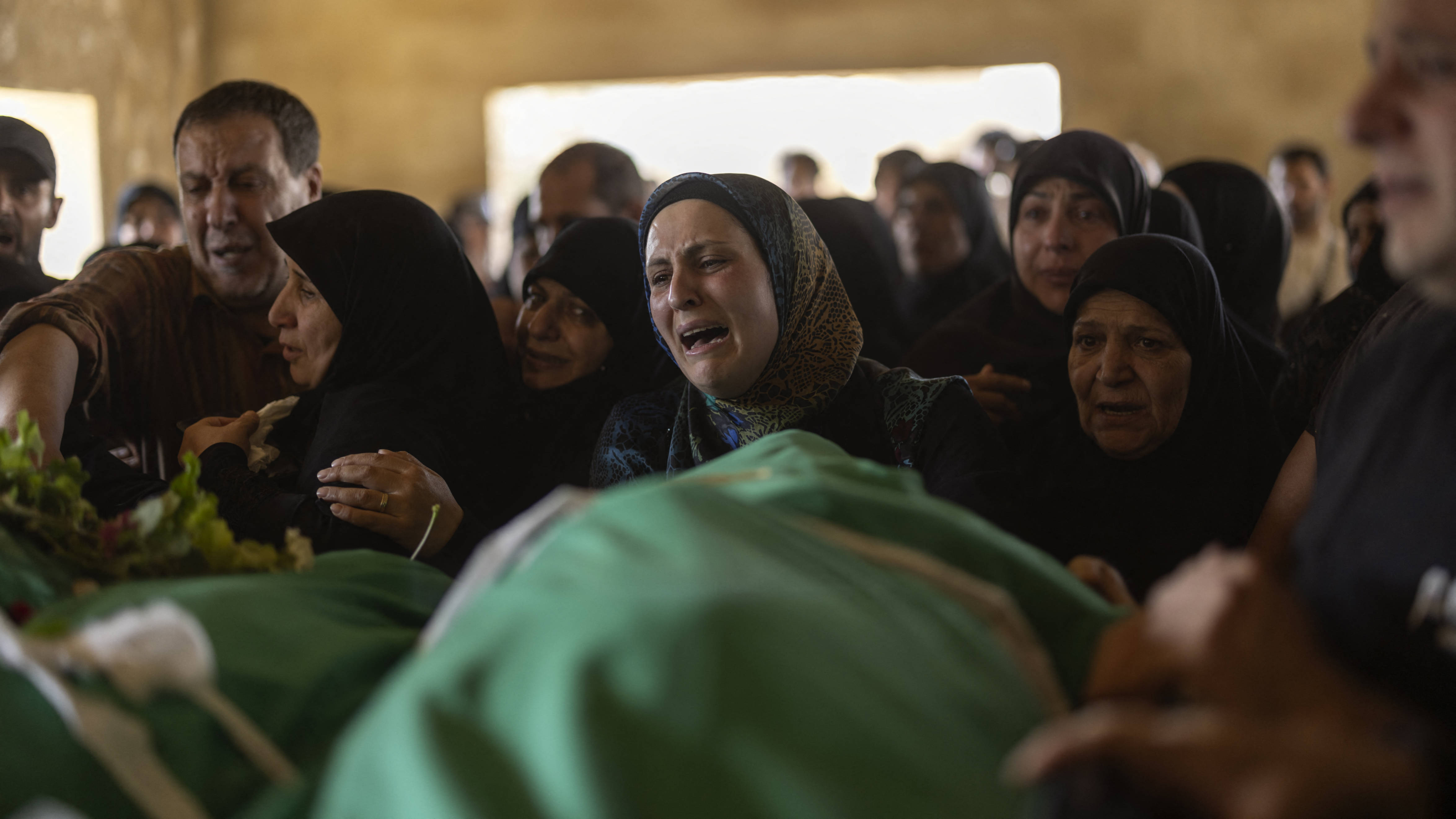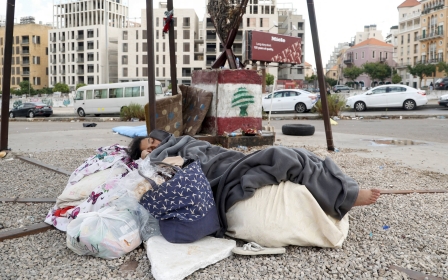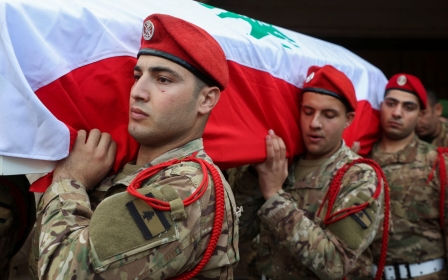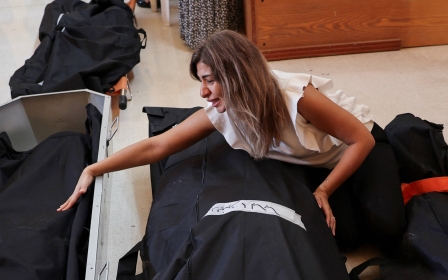'Bombed day and night': A Lebanese hospital on the front line of Israel's war
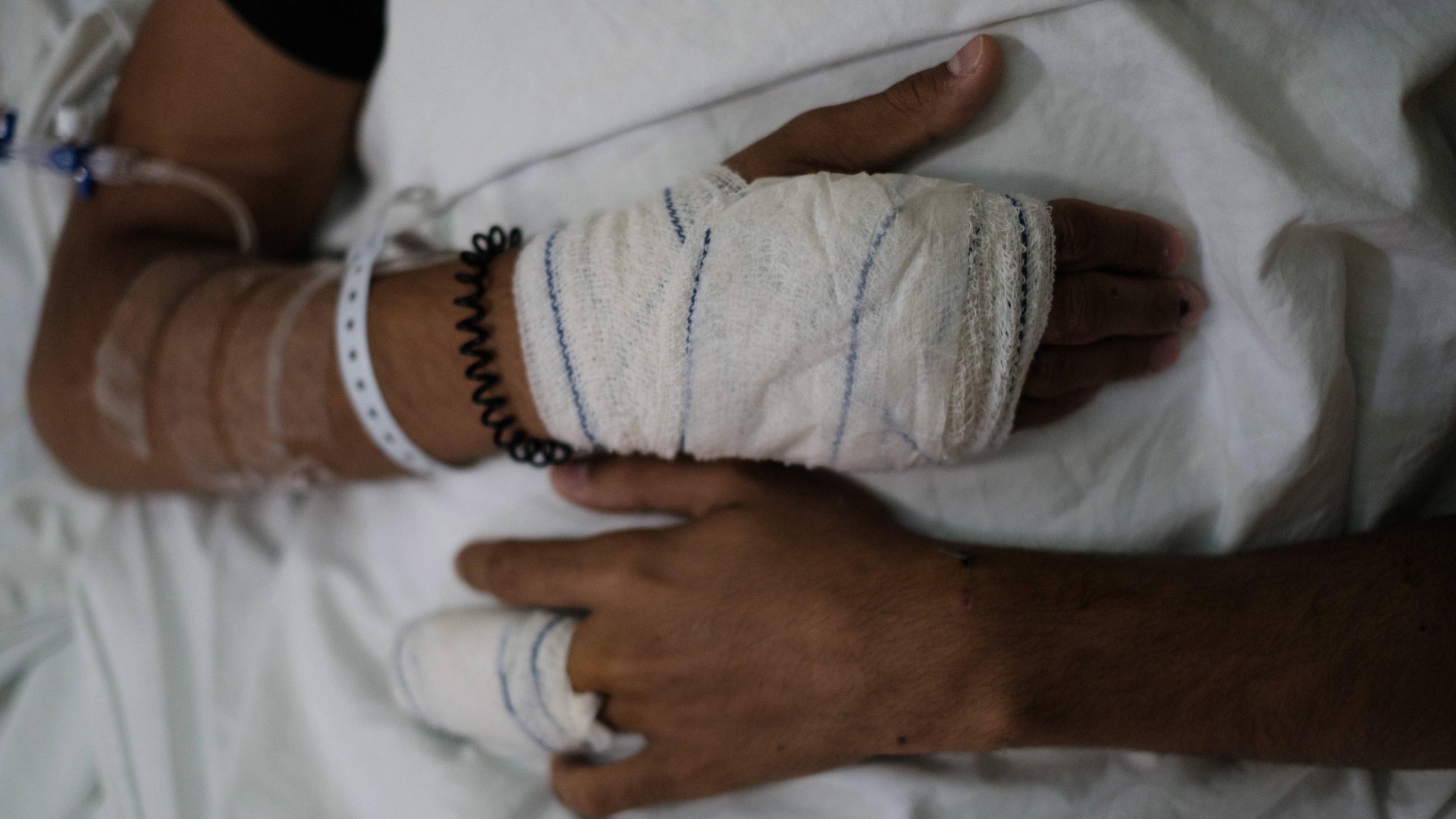
In the Beqaa Valley, on the eastern front line of Israel's war on Lebanon, wounded patients lie in agony in the rooms of a hospital where an exhausted staff have been tending to the victims of indiscriminate and relentless attacks for weeks on end.
The Abdallah hospital in the city of Rayak faces a particularly precarious situation. Its location in the Beqaa Valley, a landlocked strip of land between Mount Lebanon and the Anti-Lebanon Mountains, has been the target of daily Israeli strikes since mid-September.
On the main roads, rare vehicles can sometimes be seen speeding along. The few neighbouring villages are deserted, emptied of their residents by the constant roar of bombs.
According to the latest figures released by the Lebanese ministry of health, 2,255 people have been killed and more than 10,524 wounded by Israeli bombings since 8 October 2023. At least 1,645 people have been killed since Israel escalated attacks on Lebanon on 1 September.
If the Lebanese medical system is currently coping, it could quickly reach saturation point, especially since the staff, already exhausted by the sheer number of wounded, are forced to practice war medicine within an already fragile healthcare system.
New MEE newsletter: Jerusalem Dispatch
Sign up to get the latest insights and analysis on Israel-Palestine, alongside Turkey Unpacked and other MEE newsletters
Inside the Abdallah hospital, faces are tired and features are gaunt. Faced with the influx of patients in recent weeks, the staff have not been allowed to return home for 20 days.
"Some of the medical staff no longer have a home, they were destroyed by the bombings," the hospital's medical director, Dr Basil Abdallah, told Middle East Eye.
In his office, a medical team is taking stock of the situation. All have their eyes glued to a television screen that broadcasts the news continuously, waiting for a new strike to be announced.
'We are devastated by the large number of children, aged five to 10, who are seriously wounded'
- Member of medical staff, Abdallah hospital
"We have received 425 wounded people, all civilians. We are devastated by the large number of children, aged five to 10, who are seriously wounded," a member of the medical team said.
Tony Abdo, one of the doctors, continued: "Eighty people died in the hospital, some were transported here with their bodies in tatters, torn to pieces by the bombings."
A sudden thud from outside does not even startle the staff. Only a few of them take the time to look out of the window. False alert.
"The surroundings are bombed day and night, non-stop. Two days ago, a bomb fell 500 metres away. Windows shattered and a suspended ceiling collapsed," Abdo said.
"The majority of the wounded were seriously wounded; we performed surgery mostly on the thorax, abdomen, kidneys, feet. War medicine, worse than in 2006," Abdallah told MEE, referring to the 33-day war waged by Israel against Hezbollah inside the Lebanese territory that year, before the Israeli army was forced to pull back.
State of deep shock
Inside the Abdallah hospital, the accounts of medical staff are excruciating, and even more so the visits to patients' rooms.
In one of them, a 13-year-old Syrian, his eyes wide open, terrified, moans on his bed.
"He is in severe pain, we are doing everything we can to ease his agony," Abdallah, who treats the young boy, said.
The child was wounded while working in a field near Baalbek. Covered in bruises, placed on a drip, with a tube inserted in his urethra, the young man had a leg amputated and a kidney removed.
In a state of deep shock, he is unable to communicate. "Like many patients who have been the victims of bombings," his doctor said.
At his side, his brother tries to provide support. "He was outside and he was the most seriously wounded," he told MEE.
"Another of our siblings was seriously wounded, while another brother lost a kidney. Our mother was wounded in the legs and can no longer walk," he added, looking anxiously outside the window.
The hospital's surgeons have had to operate on a great number of children, who often needed amputations.
"We have just performed surgery on a 23-year-old Lebanese woman, we had to amputate both her legs, very high, at the femur level," Abdo said.
"And we also received a young girl, aged about 10, who suffered impact injuries everywhere from projectiles from the explosion, including in the anus and inside the vagina. It is very hard."
In a neighbouring room, Rima Hamsi, 35, keeps watch over her six-year-old daughter, Noor, as she twists and turns in her bed.
The child was unconscious when she was admitted to the intensive care unit. Doctors say they had to remove fragments of projectiles that had penetrated her skull.
"We were in front of the house with Noor and her brother when an explosion destroyed the building next door. There were 15 of us, everyone was wounded," Hamsi told MEE.
The child, her head bandaged, opens her eyes and searches for her mother's gaze. She no longer speaks.
"Today, I have no choice but to watch over my daughter, looking through the windows at the bombs that continue to fall near us," said her mother, who seems almost indifferent to the threat looming over the hospital.
'We're exhausted'
At the hospital in Rayak, the scenes appear as evidence that, far from being limited to targeting Hezbollah's infrastructure and arsenal, as the Israeli military claims, the strikes are wreaking havoc among civilian populations and infrastructure.
A few kilometres away from the Abdallah hospital, civilians are burying their loved ones. Similar scenes have been repeated endlessly in the Beqaa Valley in recent weeks.
Faced with so much suffering, the staff are on the verge of collapse, Ghawa, a nurse in the paediatric ward, told MEE.
"Psychologically, it's very difficult for everyone. We're exhausted, we haven't seen our families in a very long time, we're worried about them," she said.
"In addition, the excruciating nature of the treatments and procedures we have to perform is very difficult to bear. Some of our patients have no one left; their entire families have been wiped out," she added.
"I am terrified that more and more children will be seriously wounded."
According to the medical director, the hospital has the capacity to continue its mission for the time being. The proximity of several hospitals in the city of Zahle, located a few kilometres away and currently spared by Israeli strikes, allows them to dispatch the wounded.
"As soon as the patients can be taken along, many families want them to be transferred to Zahle because the incessant strikes here carry a heavy psychological burden on these traumatised people," Abdallah said.
For the time being, the hospital has no shortage of pharmaceutical products, Abdo said. However, the severe financial issues Lebanon has been facing over the past five years have impacted the healthcare system, including medical supplies.
"Since the beginning of the economic crisis [in 2019], we have been in a difficult situation," he said.
"Aid from Jordan, Iraq, the United Arab Emirates and Egypt continues to arrive through Beirut airport. But if it were to close its doors, it would be a disaster."
Hanging by a thread
In other hospitals visited by Middle East Eye in the Beqaa Valley and in the capital, Beirut, similar scenarios are unfolding.
The medical system has so far been able to care for patients, but it seems to be hanging by a thread, especially as six hospitals have already been put out of service by Israeli strikes.
'The Israeli army is increasing its attacks on health workers and first responders in southern Lebanon. It is not just about attacking the health system; it is about destroying it'
- Ghassan Abu Sittah, British-Palestinian surgeon
British-Palestinian surgeon Ghassan Abu Sittah, who worked in the Gaza Strip for 43 days when Israel launched its war on the Palestinian enclave last October, expressed his concerns to MEE.
"The health system in Lebanon has suffered from four years of economic collapse. A third of doctors have emigrated, the capacity of the health ministry to support hospitals is zero," he told MEE at the American University of Beirut Medical Center (AUBMC).
"The situation is very precarious and, as in Gaza, the Israeli army is increasing its attacks on health workers and first responders in southern Lebanon. It is not just about attacking the health system; it is about destroying it."
On 11 October, a United Nations inquiry found that Israel had carried out a concerted policy of destroying Gaza's healthcare system, actions amounting to both war crimes and the crime against humanity of extermination.
"Children, in particular, have borne the brunt of these attacks, suffering both directly and indirectly from the collapse of the health system," said Navi Pillay, a former UN high commissioner for human rights and chair of the inquiry, whose report will be presented to the UN General Assembly on 30 October.
Middle East Eye delivers independent and unrivalled coverage and analysis of the Middle East, North Africa and beyond. To learn more about republishing this content and the associated fees, please fill out this form. More about MEE can be found here.


